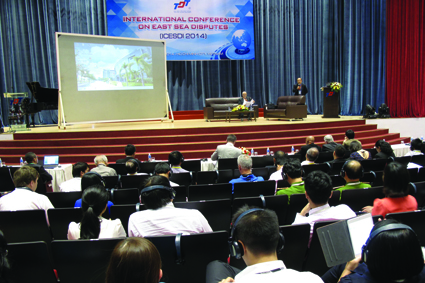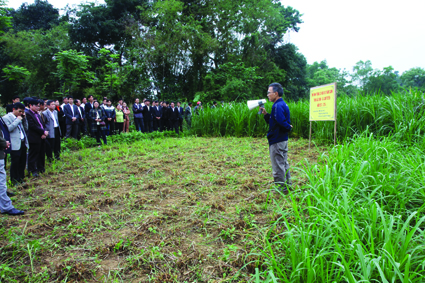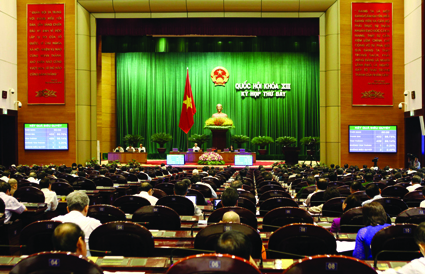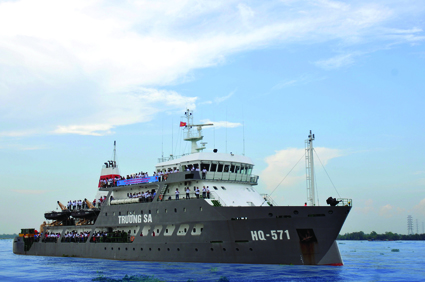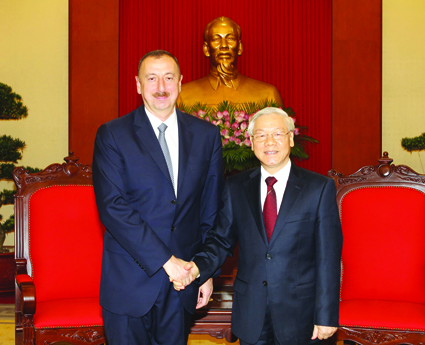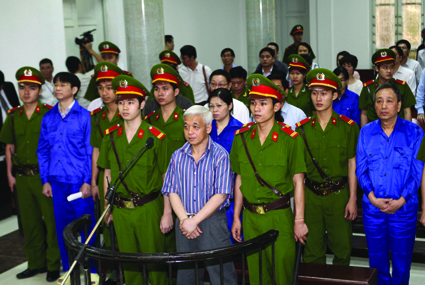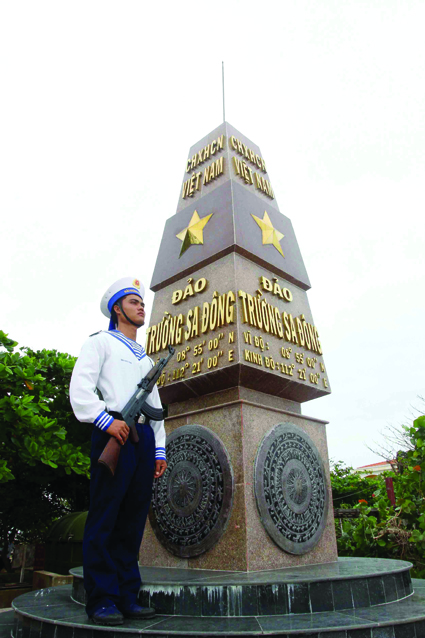The new Law on Foreigners’ Entry into, Exit from, Transit through and Residence in Vietnam (the Law), which will come into force next year, aims to strictly control but still facilitate the flow of foreign visitors and expatriates into the country in conformity with relevant domestic laws as well as treaties to which Vietnam is a contracting party.
Vietnam Law and Legal Forum talks with Major General Nguyen Ngoc Anh, director of the Ministry of Public Security’s Legal Department, about the Law.
Why it is necessary to elaborate and issue a new Law on Foreigners’ Entry into, Exit from, Transit through and Residence in Vietnam?
The Ordinance on Foreigners’ Entry into, Exit from and Residence in Vietnam was enacted by the Xth National Assembly on April 28, 2000, and took effect on August 1 of the same year. The Ordinance and its guiding documents have laid a legal foundation for state management work and at the same time facilitated foreigners’ entry, exit and residence. However, as the Ordinance was issued quite a long time ago, some of its provisions have become irrelevant and impractical and need revision.
First, the Ordinance allows foreigners to apply for change of visa status after having entered the country. Over the past years, this regulation has been exploited by quite a few foreigners for their own advantage. These foreigners at first enter Vietnam with visitor visas and then ask for change of the purpose of their trips so as to stay on and work in the country. Some cannot find any jobs while others even become homeless, thus badly affecting the security situation in Vietnam.
Second, the Ordinance stipulates that a Vietnamese visa is valid for at most 12 months. This is inconsistent with the 2005 Investment Law which allows foreign investors to obtain visas with a validity period of up to five years.
Third, although the current law requires foreign visitors to declare their stay to their accommodation establishments, it says nothing about the duty of accommodation businesses to send information about their guests’ stay to immigration authorities. For that reason, functional agencies hardly obtain such information in time.
Last, the Ordinance permits local agencies, organizations and individuals to invite, or provide guarantee for, foreigners to visit Vietnam but it fails to clearly define the responsibilities of inviters, thus causing difficulties to management work.
The issuance of a new law governing foreigners’ entry, exit, transit and residence aims to deal with the above problems.
What are new provisions of the Law?
Compared to the 2000 Ordinance, the Law contains many new provisions which are designed to fix existing legal loopholes and simplify administrative procedures to create more favorable conditions for foreigners’ entry, exit, transit and residence.
The Law no longer permits foreigners who are in Vietnam on tourist visas to change their visa status. This provision, which is introduced in Article 7 of the Law, will put an end to the entry into Vietnam with visitor visas for job-seeking purposes.
Regarding visa validity, the Law states that ordinary employment visas are valid for two years at most, while visas for investors and lawyers practicing in Vietnam may be valid for five years. The validity of temporary residence cards is correspondingly prolonged to the maximum of five years.
Under the Law, foreign visitors do not need to come in person to police offices to make stay declaration. Hotels and inns will take charge of making temporary residence declaration for their foreign guests. In addition, lodging establishments must have computers connected to the Internet or immigration authorities’ networks to transmit declared information electronically.
The Law clearly defines rights and obligations of foreign visitors as well as rights and responsibilities of their local hosts.

at Tan Son Nhat international airport__Photo: Tran Hung/VNA
It also prohibits authorized overseas Vietnamese agencies from granting visas to those who have no invitations or guarantee of agencies, organizations or individuals in the country. Heads of authorized overseas Vietnamese agencies may grant visas valid for up to 30 days in some certain cases but they must be responsible for their decisions.
Another important new regulation in Article 4 of the Law stipulates that a foreigner holding multiple passports may use only one of these passports to carry out entry, exit and residence procedures. This aims to prevent future complications in external, criminal or civil relations and ensure the accuracy of statistical data.
In a bid to streamline administrative procedures, the Law details procedures foreigners must go through if they wish to enter into, exit from, transit or reside in Vietnam and how to complete these procedures. These provisions can be applied immediately when the Law comes into force without having to await guiding documents.
Cases eligible for visa exemption are specified in the Law. Particularly, with a view to preventing complications which might occur in external relations when Vietnam suspends the unilateral visa waiver for a specific country, the Law clearly stipulates the conditions and competence for deciding on unilateral visa exemption, saying that such a decision will be effective for at most five years but may be extended.
Foreign passengers’ transit through the country is also guided in detail. If transit passengers, who are exempted from visa, wish to take sightseeing tours organized by travel agents, they will be granted transit visas of a validity duration corresponding to their transit time.
The Law also specifies cases in which foreigners may be expelled from Vietnam and persons and agencies competent to issue expulsion decisions.
Many foreigners have shown their deep interest in the possibility of obtaining visas at international border gates. Could you explain about thís?
In order to facilitate foreigners’ entry into Vietnam, Article 18 of the Law states that foreign visitors may receive visas right at international border gates if:
- They depart from countries without a Vietnamese agency competent to grant visas;
- They have to travel through many countries before arriving in Vietnam;
- Their trips are organized by Vietnam-based international travel agents;
- They are crewmembers of foreign ships anchoring at Vietnamese seaports and wish to exit Vietnam via other border gates;
- They enter Vietnam to attend a relative’s funeral or visit a seriously ill relative;
- They enter Vietnam for the purposes of responding to urgent incidents, conducting search and rescue activities, preventing and controlling natural disasters or epidemics or for other special purposes at the request of Vietnamese authorities.
Foreigners who are eligible for visa grant at international border gates will present their passports or international travel documents, together with visa application forms already filled in and stuck with their photos, to immigration offices at international border gates. Information on children under 14 years who share the passports with their parents or guardians will be declared on the same visa application forms of their parents or guardians. Immigration offices will check these papers and issue visa according to regulations.
How about foreigners’ temporary residence in industrial parks, export processing zones, border-gate economic zones or special economic-administrative units?
Regarding this issue, Article 34 of the Law says that foreigners may stay at accommodation establishments in industrial parks, export processing zones, border-gate economic zones or coastal economic zones. They may also choose to stay at lodging establishments in border areas, tourist cities, tourist sites, special economic-administrative units and other economic zones in border areas. However, they are not allowed to stay in closed or restricted border areas on the mainland or at sea.
Procedures for temporary residence declaration are specified in Article 33 of the Law. Agencies receiving foreigners’ temporary residence declarations will have to notify such information to border guard stations of the localities where these foreigners reside.-
